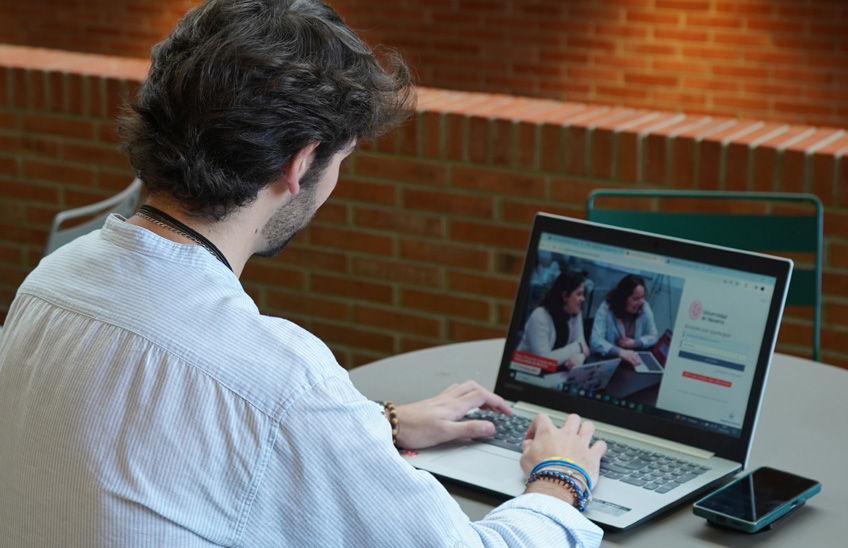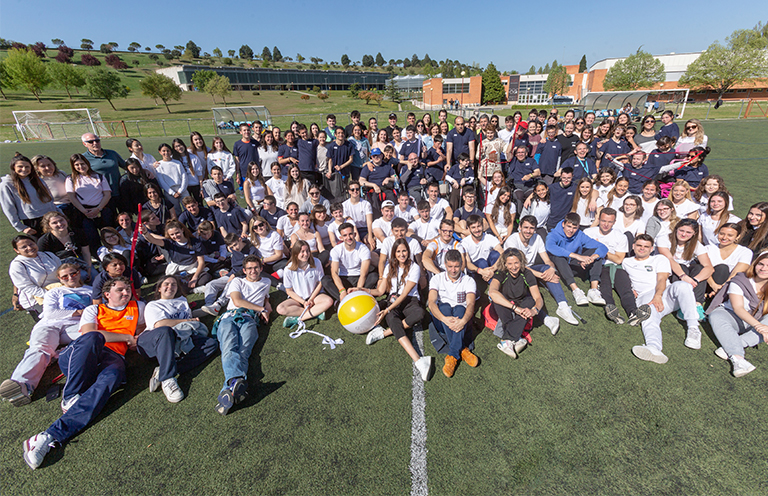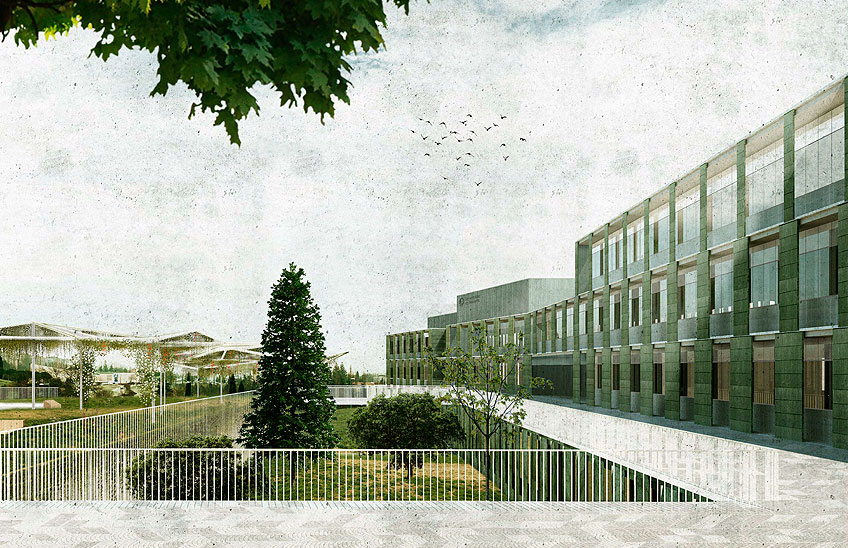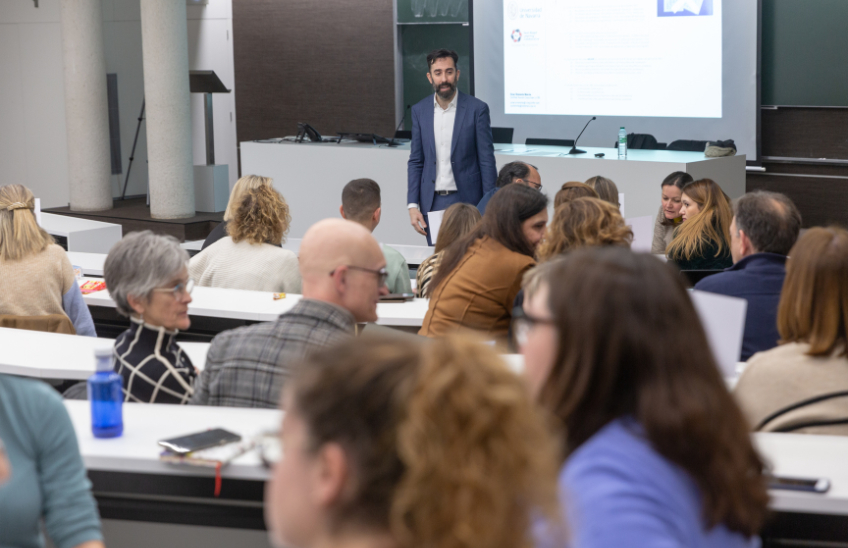Noticia_EyP_20210221_inclusion_educativa
A study by the University of Navarra highlights the pending challenges for the educational and social inclusion of the Roma youth.
Araceli Arellano, lead researcher, highlights the need to better understand how these young people experience the transition to adulthood.
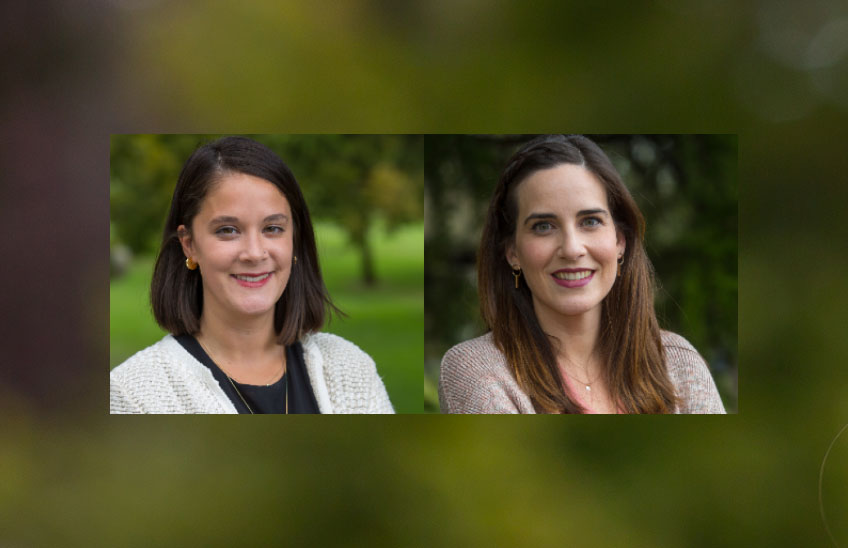
FotoManuelCastells/Araceli Arellano and Sarah Carrica Ochoa, researchers at project.
02 | 02 | 2021
Around 64% of Roma student body do not complete their compulsory programs of study in Spain, and very few reach higher levels. Is work really done from an intercultural approach of Education ? Can educational practices be improved to generate inclusion? What are the practices, validated by the research, to improve the status of the Roma student body ? The book Roma Youth: challenges for their educational and social inclusion in their transition to adult life, addressed to professionals in the socio-educational field, tries to answer these questions through 5 chapters.
This publication is the result of a project of research started in 2016 graduate "The transition to adulthood of young people from the Roma community in Navarra". A project in which the lecturers Araceli Arellano, Sarah Carrica-Ochoa, Feli Peralta, Charo Repáraz and María Ángeles Sotésof the School of Education and Psychology of the University of Navarra have participated.
This research analysed the lack of opportunities to finish compulsory programs of study and to continue with their training faced by young people aged between 11 and 18 from the Roma community in Navarre. "Young Roma experience different processes of transition to adulthood, from the point of view of staff, social and family. We need to better understand how this stage is understood by families in order to be able to propose tools that have real meaning", explains Araceli Arellano, lead researcher .
The researchers are committed to "the accompaniment and training of young people in personal skills to improve their presence and participation both in formal education and in different social and community spaces" as a measure to reduce the dropout rate among these young people.
model from Education intercultural
goal The researcher and professor Sarah Carrica-Ochoa points out that "it is necessary to move towards an intercultural model of Education which has the double aim of achieving a quality individual Education and social cohesion. Equipping the student body with a set of competences that helps them not to have to choose between their own culture and the majority culture. This means empowering the student body, moving from working from compensatory visions to being learning communities".
This publication has been edited by University of Navarra professors Araceli Arellano, Sarah Carrica-Ochoa and María Ángeles Sotés. Researchers Fernando Macías-Aranda, Rosa Valls Carol, Jorge González García, from the University of Barcelona; Tania García Espinel, from the department of work, Social Affairs and Families, of the Generalitat de Catalunya, have also collaborated in this publication.
Professionals from Roma organisations in the region of Navarre and educational centres from reference letter also participated: Ricardo Hernández and Ana Sainz from the Federation of Roma Associations of Navarre Gaz Kaló; Rubén Fuertes from high school Alfonso X El Sabio; Antonio Jiménez and Esther García from the Social Services of Andosilla, Azagra, Cárcar and San Adrián; Inés García Pérez and Itziar Zudaire de Luis, from the Fundación Secretariado Gitano.


